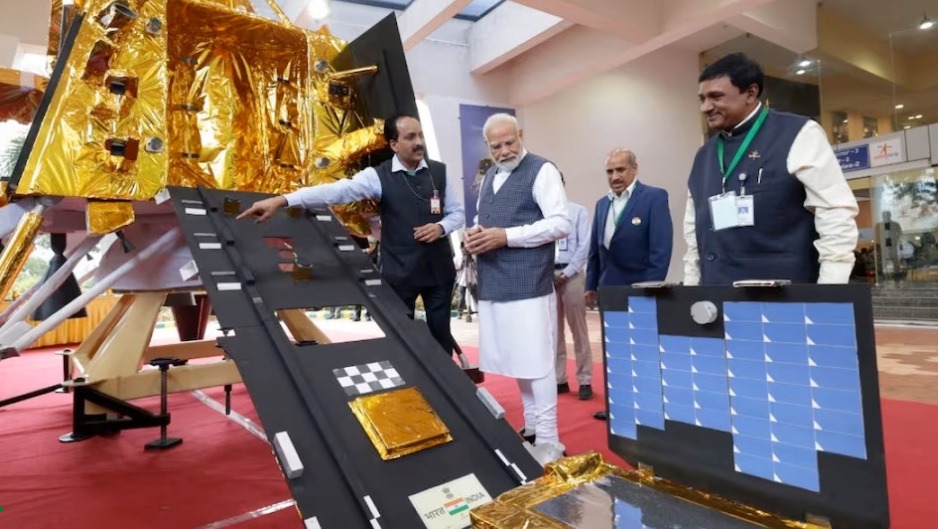For the past eleven years of going around India with my space advocacy, I have always said – we need to commercialise our space exploration technologies. Those who know me have heard me giving an example of the PTOLEMY instrument onboard the European Space Agency’s Philae Lander that descended onto comet 67P/Churyumov-Gerasimenko in 2014. PTOLEMY was a gas chromatograph isotope-ratio mass spectrometer (GC-ir-MS) designed to analyse the isotopic composition of volatile compounds on the comet – the kind that differentiates between heavy (18O) and light oxygen (16O). PTOLEMY, a product of the UK-based Rutherford Appleton Laboratory and the Open University of Milton Keynes, played its cometary research role well. Later, when the mission ended in 2016, an advanced, efficient and lighter (payload mass) version of the same space-based PTOLEMY was created exclusively for the UK and one of the world’s biggest defence contractors, BAE Systems, which is now contemplating to use PTOLEMY’s new avatar on the Astute- and Dreadnought Class of nuclear-powered submarines.
I once spoke to a well-known ISRO hardware scientist in 2018 after seeing this space-payload to Earthly-commercial application transition. This was during the Bengaluru Space Expo. Since the renowned scientist knew me and my background, I asked, “Sir, why don’t we commercialise our payloads, spin them off to the industry?” he immediately quipped, “Commercialisation is not our responsibility; we only do science.”
The quick retort left me thinking, ‘if ISRO does not reap the benefits of its government-funded R&D, commercialise its payloads, its technologies in a country where every second science-loving student wants to join ISRO, will India’s space missions ever deliver to our high-technology manufacturing goals?’ ISRO cannot employ all those who can deliver to the Indian space program. For talent retention, creating a space exploration industry ecosystem becomes crucial. I gave him the benefit of the doubt for not being too keen on commercialisation; government-funded scientists seldom commercialise the technologies they work on. The insight of the government was needed for such commercialisation, which happened after the 2020 space reforms.
Now, moving to a recent public statement by ISRO Chairman Dr. S. Somanath, he gave on the occasion of Bharat Ratna APJ Abdul Kalam’s birth anniversary. He narrated an incident when a few officials from the Jet Propulsion Laboratory, during their visit to the ISRO Headquarters some days before the Chandrayaan-3 soft-landing, said, “Look at the scientific instruments, they are so beautiful and very cheap. They are very easy to build, and they are high-technology. How did you build it? Why don’t you sell this to America?” Indeed, international validation is vital, especially from peer institutions. More importantly, JPL did not shy away from asking to purchase the elements of Chandrayaan-3 that they found worthy.
If JPL can so effortlessly ask for purchase, what would it take for Indian industries to purchase Chandrayaan payloads or those from Mangalyaan? Why is it not that India, whose precision analytical instrumentation imports are enormously high, above 90%, and almost all strategic and non-strategic laboratories wholly depend on these instrumentation, does not reap payloads built by ISRO? This is a tricky question the Department of Space should soon ponder over. And the necessity to ponder is any surprise denial of exports to India or disruption of supply chains.
In September 2022, the US Department of Commerce’s Bureau of Industry and Security published a sanctions list against Russia and Belarus under the Export Administration Regulations (EAR), including many commodities, including those from the precision instruments category. Similarly, in October 2022, as part of the sanctions regime against China, the US decided to ban exports of specific semiconductor manufacturing equipment, and advanced chips, among others, were added to the Commerce Control List of EAR.
In the trade-weaponised era of the 2020s, which doesn’t seem to be returning to consensual orderliness, ISRO’s proven technologies must be spin-off with priority to be absorbed in the Indian industrial ecosystem. The Department of Space must be prepared that these takers may not necessarily be from the space ecosystem. The defence, medical, agritech, environmental monitoring, chemical, shipping, automotive, and rail industries could be new takers of ISRO technologies. But is there enough sensitisation from the Department of Space about these commercialisation avenues? The US has always been a talent magnet; it need not be a magnet for Indian government-funded proven technologies. What JPL asked may be superficially viewed as an appreciation, but it is a step towards aggressive acquisition, which American entities play very well.
There has been enough said and written about INSPACe hand-holding Indian startups. It is yet to be seen which of Chandrayaan, Aditya, Shukrayaan and Mangalyaan payloads are readily commercialised to non-space companies of India – be it a defence-PSU like Cochin Shipyard, or a conglomerate company like TATA Motors, or a specialised company like United Phosphorus. That ship is yet to sail.





